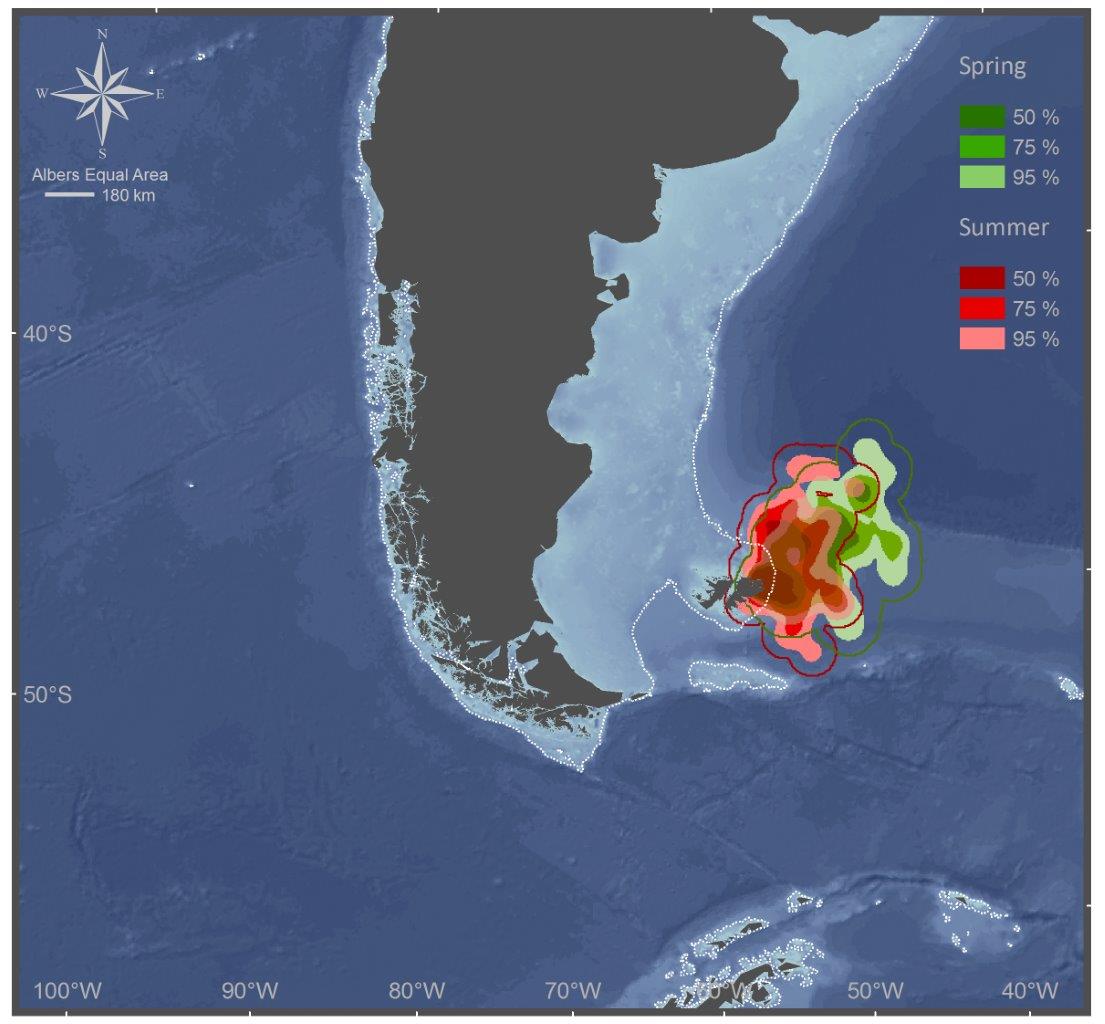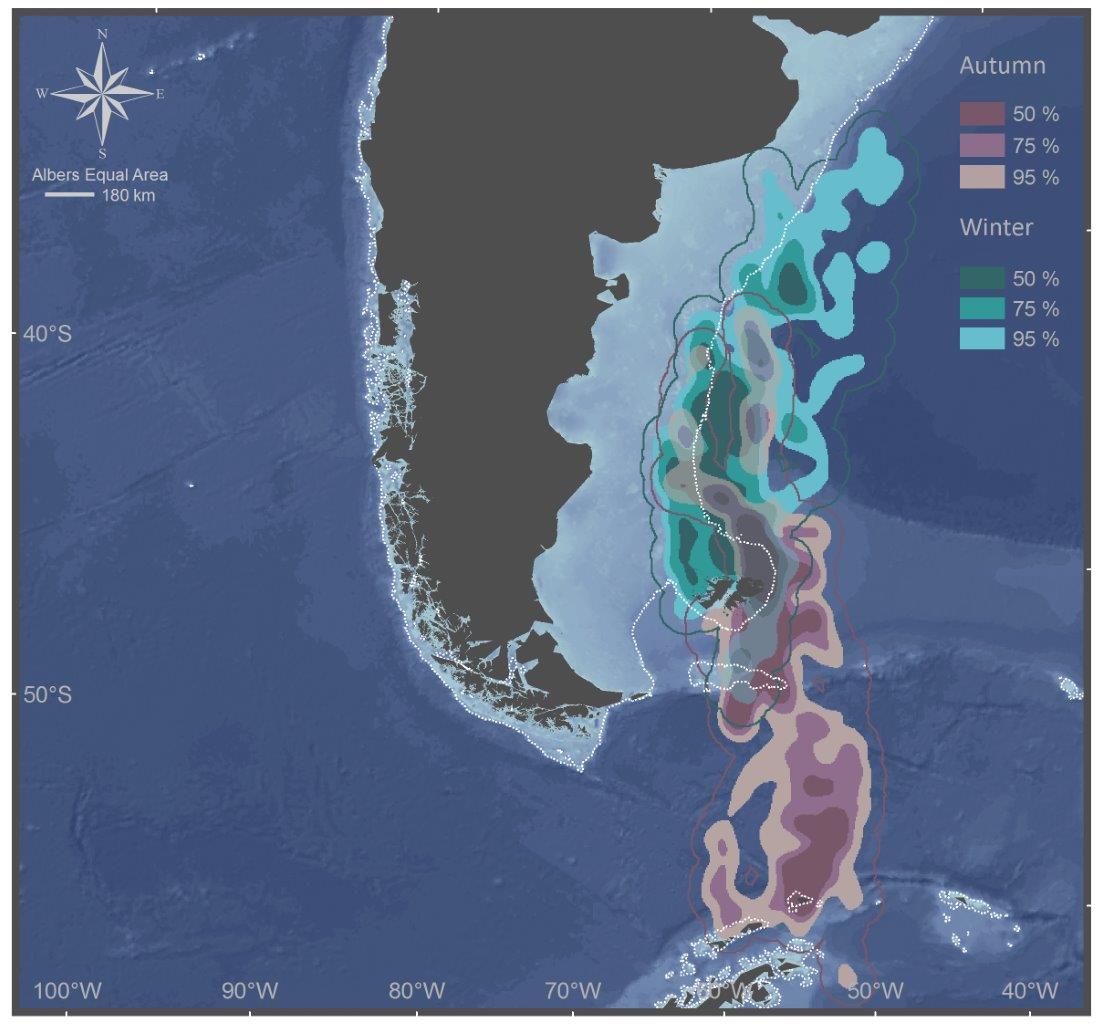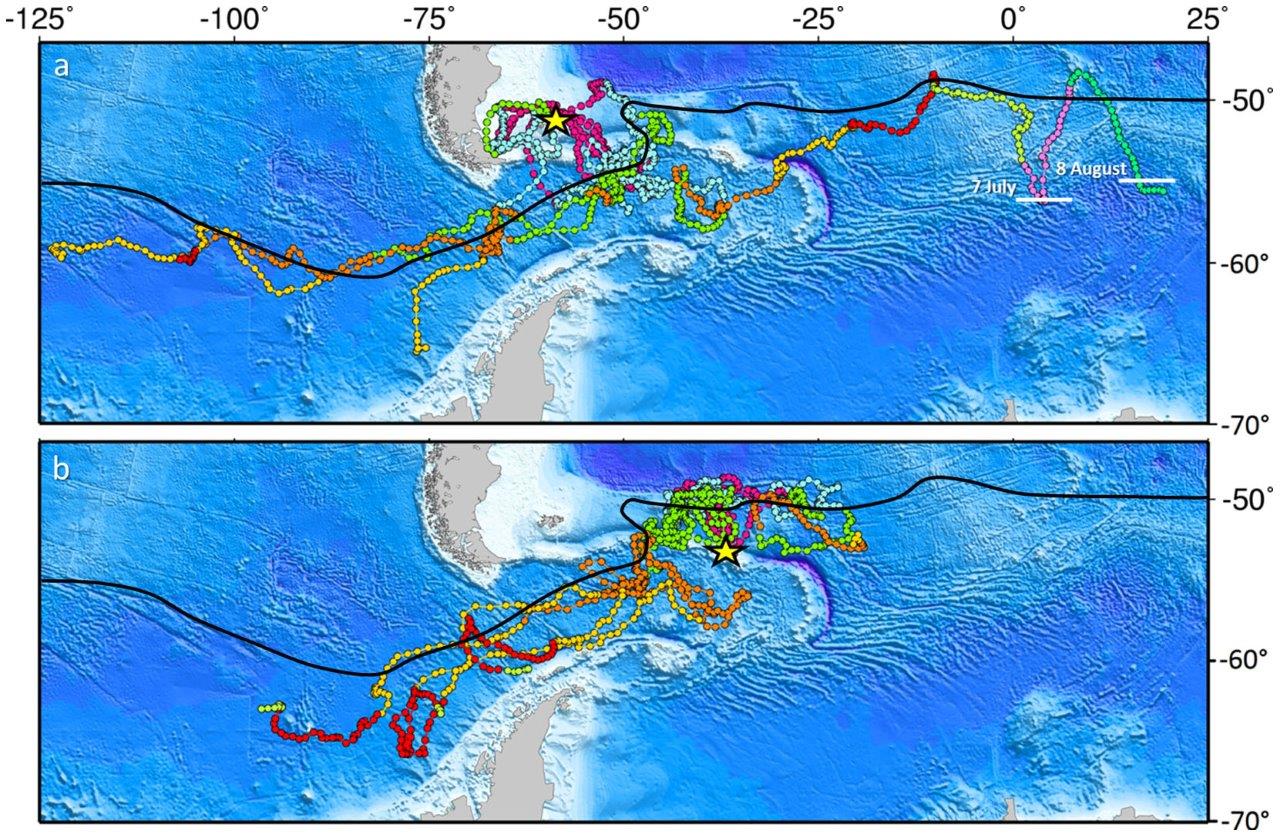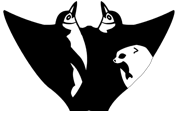King Penguins breed on islands around the Antarctic continent (1). Their population in the South Atlantic is unevenly spread between the Falkland Islands/Malvinas and South Georgia: while more than 400,000 breeding pairs live on South Georgia, there is only a small breeding colony on the Falklands, established in the late 1960s, which produces about 500 chicks a year (2).

King Penguin dispersal spring and summer

King Penguin dispersal autumn and winter
Studies on the breeding biology of King Penguins have shown that birds from the Falklands differ from their conspecifics at other breeding sites in that they have a shorter breeding period (3). They also differ in their preferred feeding areas (4) and their prey during the course of the year (5, 6). Research into their diving behaviour highlighted their great diving capabilities and also synchronized diving behaviour (7). However, juvenile King Penguins from the Falklands and South Georgia did not display these behavioural differences (8). These birds foraged, irrespective of their breeding site, mainly within the vicinity of the Antarctic Convergence and migrated from the Atlantic into either the Indian or Pacific Oceans.

Dispersal of juvenile King Penguins from the Falklands and South Georgia
Comparable studies were conducted on the foraging ecology of King Penguins from a colony in Bahía Inútil, Magellan Strait, Chile. This colony has established only recently and the first chick fledged successfully in 2015. The marine habitat of these birds differs greatly from that of conspecifics at other breeding sites, especially with regard to behavioral adaptations in their diving behaviour (9) and their foraging ecology (10).
- (1) Bost, C.A., K. Delord, C. Barbraud, Y. Cherel, K. Pütz, C. Cotté, C. Péron & H. Weimerskirch (2013) King Penguin. Pp 7-21 in: García Borboroglu, P.G. & P.D. Boersma (eds.) Penguins – Natural History and Conservation. University of Washington Press, Seattle U.S.A. ISBN 978-0-295-99284-6
- (2) Pistorius, P., A. Baylis, S. Crofts & K. Pütz (2012) Population development and historical occurrence of King Penguins at the Falkland Islands. Antarctic Science 24(5): 435-440
- (3) Otley, H., A. Clausen, D. Christie, N. Huin & K. Pütz (2007) Breeding patterns of King Penguins from the Falkland Islands. First results. The Emu 107: 156-164
- (4) Pütz, K. (2002) Spatial and temporal variability in the foraging areas of breeding King Penguins. The Condor 104: 528-538
- (5) Piatkowski, U., K. Pütz & H. Heinemann (2001) Cephalopod prey of king penguins (Aptenodytes patagonicus) breeding at Volunteer Beach, Falkland Islands, during austral winter 1996. Fisheries Research 52: 79-90
- (6) Cherel, Y., K. Pütz & K. Hobson (2002) Summer diet of king penguins (Aptenodytes patagonicus) at the Falkland Islands, southern Atlantic Ocean. Polar Biology 25: 898-906
- (7) Pütz, K. & Y Cherel (2005) The diving behaviour of brooding King Penguins (Aptenodytes patagonicus) from the Falkland Islands: Variation in dive profiles and synchronous underwater swimming provide new insights into their foraging strategies. Marine Biology 147: 281-290
- (8) Pütz, K., P.N. Trathan, J. Pedrana, M.A. Collins, S. Poncet & B. Lüthi (2014) Post-fledging dispersal of King Penguins (Aptenodytes patagonicus) from two breeding sites in the South Atlantic Ocean. PLoS ONE 9(5): e97164. doi:10.1371/journal.pone.0097164
- (9) Gherardi-Fuentes, C., K. Pütz, C. Anguita & A. Simeone (2019) Comparative diving behaviour of coexisting breeding and non-breeding King Penguins (Aptenodytes patagonicus) from a new colony in Tierra del Fuego, Chile. EMU 119: 61-70
- (10) Pütz, K., C. Gherardi-Fuentes, P. García-Borboroglu, C. Godoy, M Flagg, J. Pedrana, J.A. Vianna, A. Simeone & B. Lüthi (2021) Exceptional foraging plasticity in King Penguins (Aptenodytes patagonicus) from a recently established breeding site in Tierra del Fuego, Chile. Global Ecology and Conservation 28: e01669.
[:]


